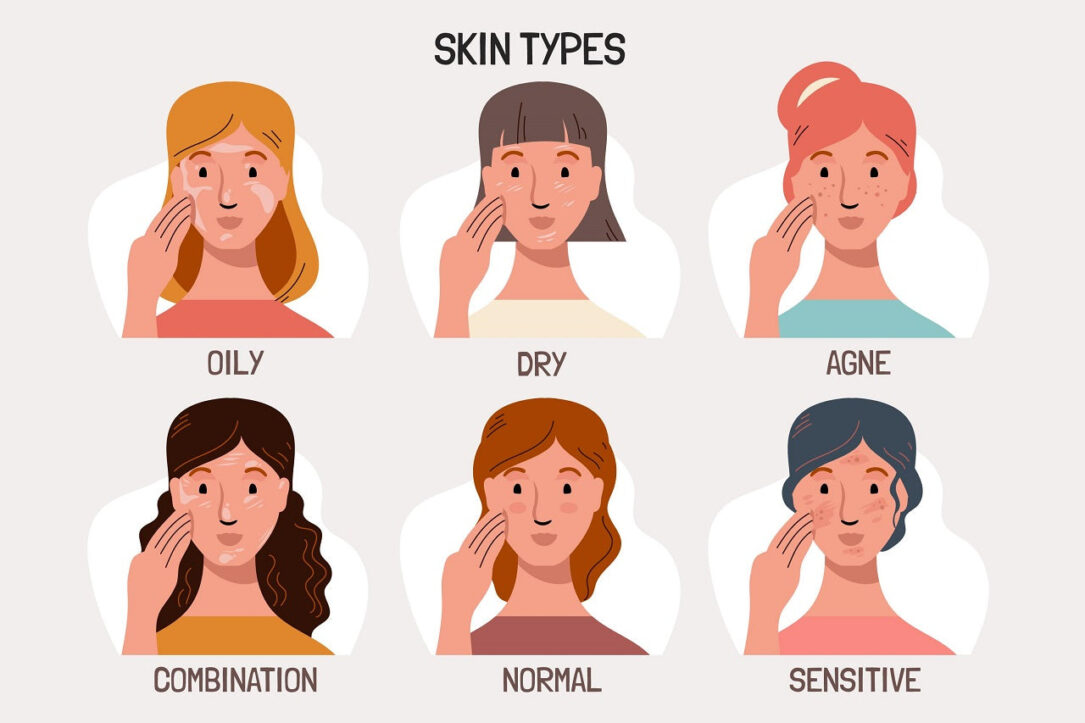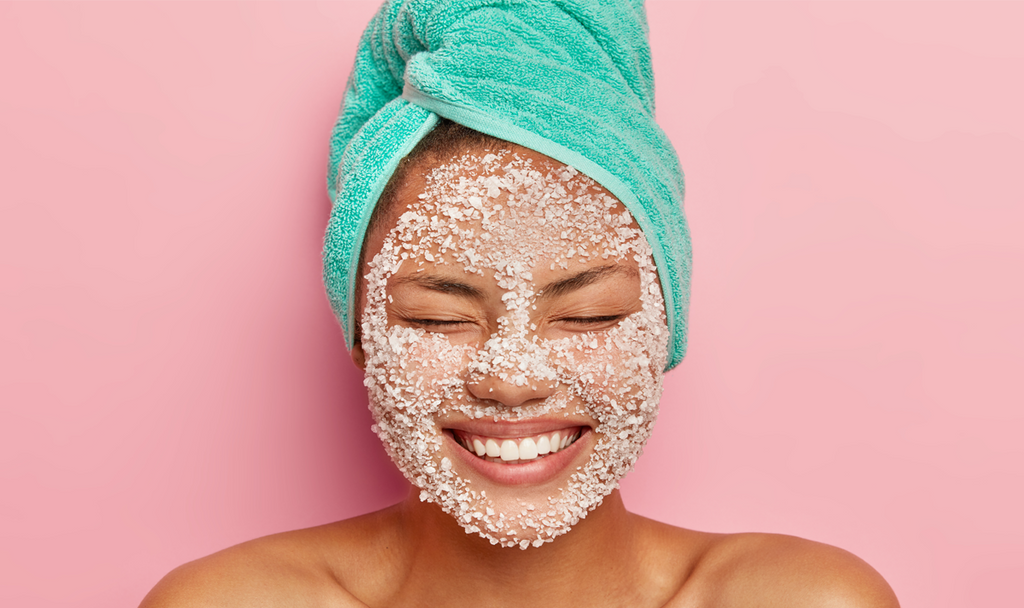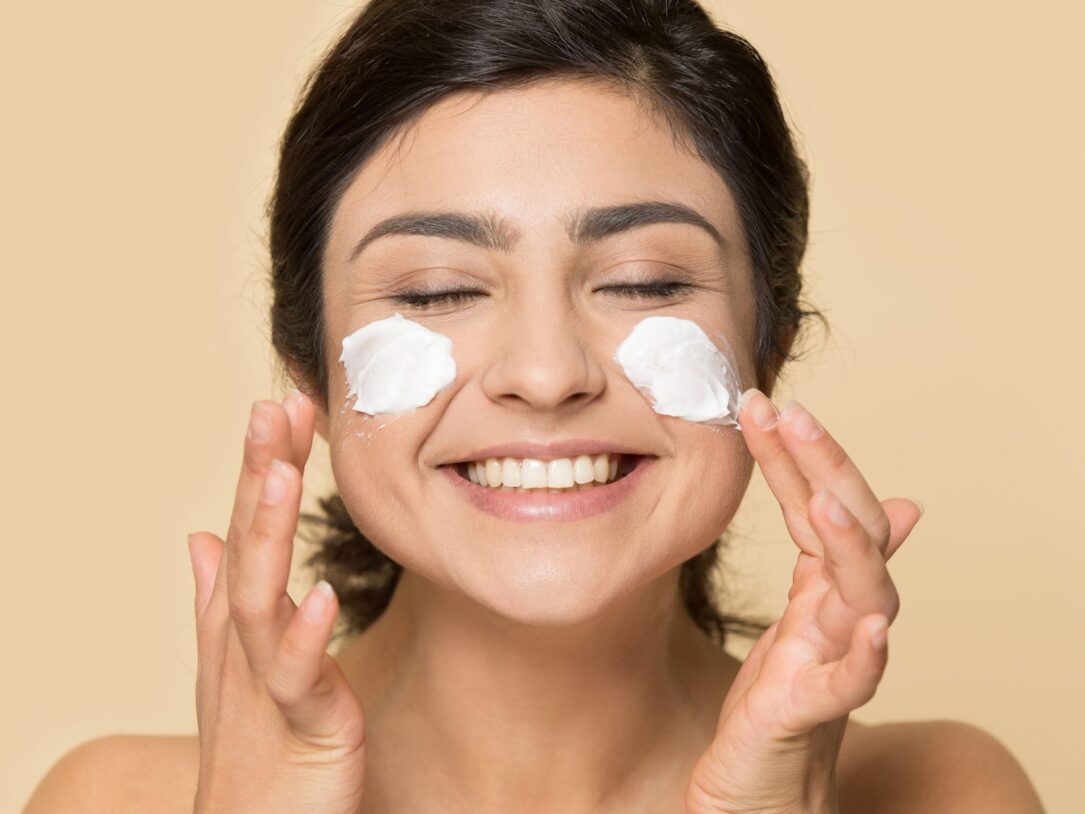Understanding the significance of moisturizing is pivotal to maintaining radiant, youthful, and healthy skin. The skin, being the largest organ, acts as our first line of defense against environmental aggressors. Well-moisturized skin can ward off signs of aging, reduce sensitivity, and maintain a balanced complexion. Hydrated derma is resilient, reflecting a healthy glow, showing fewer wrinkles, and healing more quickly from damage. It also manages oil production and diminishes the risk of skin conditions like acne. By ensuring optimal derma hydration, you promote skin health and overall well-being.
Know Your Skin Type

Recognizing your skin type is the initial and crucial step in selecting the appropriate moisturizer. The five primary skin types include normal, oily, dry, combination, and sensitive. Normal derma is well-balanced, neither too oily nor too dry. Oily skin is characterized by an excess of sebum, leading to a shiny complexion and prone to acne. Dry skin lacks natural oils, appearing dull and rough, prone to flakiness and irritation. Combination derma exhibits both dry and oily regions, typically oily in the T-zone and dry on the cheeks. Sensitive skin reacts adversely to different products and environmental conditions, appearing red and irritated.
Understanding your skin’s unique needs and characteristics enables you to select the right products, avoiding those that might trigger adverse reactions or imbalance. Thus, individual derma types necessitate tailored moisturizing approaches to maintain equilibrium and vitality.
Choose the Right Moisturizer
Selecting the suitable moisturizer is indispensable for skin health. Moisturizers come in various formulations like creams, which are thicker and suitable for dry or mature skin; lotions, lighter and well-suited for normal to oily derma; and serums, which are lightweight and excellent for combination or sensitive skin. A well-chosen moisturizer will complement your type, and help add moisture to the skin without causing breakouts or leaving a greasy residue.
Consider products with nourishing ingredients, compatible with your skin needs, ensuring effective hydration and protection. Tailoring your choice to your derma type and concerns will result in a balanced, hydrated, and healthy one.
Read Ingredient Labels

Source: preview.ph
Scanning ingredient labels is indispensable for ensuring skin compatibility and effectiveness. Look for moisturizers containing hyaluronic acid, which holds 1000 times its weight in water, delivering unparalleled hydration. Glycerin is another humectant that attracts water, maintaining derma moisture. Ceramides replenish the skin’s lipid layer, enhancing its ability to retain moisture.
Understanding ingredient compositions prevents adverse reactions and guarantees that you are providing your derma with the best possible care. Opting for products with beneficial ingredients can significantly impact your skin’s hydration and overall health.
Daily Moisturizing Routine
Instituting a daily moisturizing routine is vital for maintaining hydrated, healthy skin. A morning routine should include cleansing, toning, and applying a light moisturizer with SPF to protect against UV rays. A nighttime routine should focus on repairing and hydrating, utilizing a thicker moisturizer to replenish moisture loss throughout the day.
Consistency in your moisturizing routine ensures sustained hydration, fortifying the skin’s natural barrier against environmental stressors. By adapting your routine to your daily needs, you maintain balance and promote optimal health.
Exfoliation and Moisturizing

Source: beautyblender.com
Incorporating exfoliation is key to enhancing moisturizer absorption. By removing dead skin cells, exfoliation unclogs pores, allowing moisturizers to penetrate deeper and work more effectively. However, over-exfoliation can strip the derma of its natural oils, so moderation is crucial.
A balanced approach to exfoliation and moisturizing fortifies the skin’s natural barrier and ensures effective hydration. By embracing thoughtful exfoliation, you pave the way for healthier, more radiant derma.
Avoid Over-Moisturizing
While moisturizing is vital, overdoing it can be counterproductive, leading to clogged pores, acne, and decreased natural oil production. Adhering to the recommended amount, usually a pea-sized dab, is crucial for maintaining balance.
By avoiding excess application, you allow your derma to breathe and maintain its natural equilibrium, avoiding potential issues related to over-moisturizing.
Hydration from Within
External moisturizing is complemented by internal hydration. Consuming adequate water is essential for maintaining skin elasticity and preventing dryness and flakiness. Adequate water intake flushes out toxins, contributing to a clearer complexion.
Balancing internal and external hydration is crucial for achieving healthy, well-hydrated skin. By adopting a holistic approach to hydration, you reinforce derma health and vitality.
Sun Protection

Source: realsimple.com
Protecting your skin from harmful UV radiation is essential to maintaining hydration. UV rays can deplete derma moisture and weaken its barrier. Incorporating a broad-spectrum sunscreen in your daily skincare routine is crucial for preventing UV-induced damage.
By shielding your derma from the sun, you prevent moisture loss and preserve your skin’s health and youthful appearance.
Nighttime Moisturizing
Nighttime moisturizing plays a critical role in skin hydration and repair. During sleep, the derma undergoes a regeneration process, making it the optimal time to apply nourishing and hydrating products. Opt for richer, nutrient-dense moisturizers at night to aid the natural repairing process.
By prioritizing overnight hydration, you support the skin’s natural regenerative processes, waking up to more supple, radiant derma.
DIY Moisturizing Masks
DIY moisturizing masks using natural ingredients like honey, avocado, and yogurt can be potent hydrators. Honey is a natural humectant, avocado is rich in healthy fats, and yogurt contains lactic acid which is hydrating and exfoliating.
Implementing DIY masks is a cost-effective, natural way to boost hydration and health, providing essential nutrients directly from nature’s pantry.
Troubleshooting Dry Skin

Source: m.timesofindia.com
Addressing common issues like dry patches and flakiness is essential for maintaining healthy skin. Opt for hydrating products with hyaluronic acid and glycerin, and avoid harsh soaps and hot water, which can strip it of its natural oils.
By addressing dry skin concerns promptly, you can restore balance and maintain a healthy, hydrated complexion.
Conclusion
Maintaining well-moisturized skin is integral to our overall skin health and appearance. Recognizing your derma type, choosing the right moisturizer, implementing a consistent daily routine, protecting against the sun, staying hydrated, and addressing skin concerns promptly are the pillars of achieving and maintaining hydrated, healthy derma. Prioritizing moisturization is a transformative step towards enhancing your skin’s resilience, radiance, and well-being.
In conclusion, by integrating these practices into your skincare regimen, you foster a harmonious relationship with your derma, enabling it to thrive in its healthiest state.














